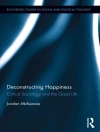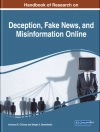The rise of corporate capitalism was a cultural revolution as well as an economic event, according to James Livingston. That revolution resides, he argues, in the fundamental reconstruction of selfhood, or subjectivity, that attends the advent of an ‘age of surplus’ under corporate auspices. From this standpoint, consumer culture represents a transition to a society in which identities as well as incomes are not necessarily derived from the possession of productive labor or property. From the same standpoint, pragmatism and literary naturalism become ways of accommodating the new forms of solidarity and subjectivity enabled by the emergence of corporate capitalism. So conceived, they become ways of articulating alternatives to modern, possessive individualism. Livingston argues accordingly that the flight from pragmatism led by Lewis Mumford was an attempt to refurbish a romantic version of modern, possessive individualism. This attempt still shapes our reading of pragmatism, Livingston claims, and will continue to do so until we understand that William James was not merely a well-meaning middleman between Charles Peirce and John Dewey and that James’s pragmatism was both a working model of postmodern subjectivity and a novel critique of capitalism.
James Livingston
Pragmatism and the Political Economy of Cultural Revolution, 1850-1940 [PDF ebook]
Pragmatism and the Political Economy of Cultural Revolution, 1850-1940 [PDF ebook]
Beli ebook ini dan dapatkan 1 lagi GRATIS!
Bahasa Inggris ● Format PDF ● Halaman 424 ● ISBN 9798890868794 ● Penerbit The University of North Carolina Press ● Diterbitkan 2000 ● Diunduh 3 kali ● Mata uang EUR ● ID 9201465 ● Perlindungan salinan Adobe DRM
Membutuhkan pembaca ebook yang mampu DRM












